Proof Before Purchase: Customer Journeys Start With Search, End With Social
Questions Franchisors Should Ask When Choosing a Social Management Tool
Multi-location marketers who feel overwhelmed by social media management may start asking themselves, what are the benefits of a social media management tool?
Social media management tools save time by letting marketers control multiple social accounts with one tool instead of logging into Facebook, Twitter, Instagram, Google My Business and other review platforms natively. Most management tools have reporting dashboards with detailed metrics so marketers can track social media engagement across multiple platforms, quantify the success of ad campaigns, and respond to every comment and reply within one platform.
For marketers trying to manage social and review response across 100s or 1000s of business locations, social management tools provide even more benefit from an efficiency standpoint. However, determining the social media management tool that is right for you requires some additional insight into your day-to-day as a marketer. Answering the questions in this blog post can help franchisors and multi-location marketers determine specific needs for a social management tool.
Stay up to date on social media trends and the latest SOCi news. Sign up today.
How many business locations do you have?
Facebook’s Local Pages and Brand Pages give multi-location businesses the ability to create a unique social presence for each franchise location in addition to the corporate entity. Local Pages are designed for individual locations, while Brand Pages are designed for the corporate presence. Instagram is currently testing a similar feature, further indicating that social platforms are realizing the power of localized social marketing.
The complications that come with managing multiple Local Pages drive some multi-location marketers to seek out social media management tools. A powerful management tool can help you control multiple social pages for multiple business locations from a single platform and coordinate efforts across local and corporate teams.
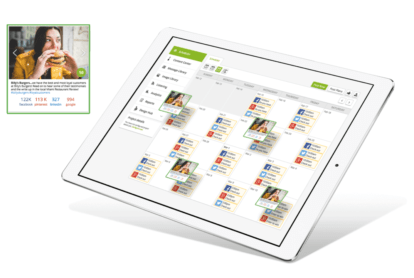
How many social media accounts platforms do you manage?
It’s not enough to have a presence on Facebook alone. In fact, your business’ digital presence extends beyond social media altogether. As the line between review site and social media platform continues to blur, the number of platforms, profiles, and pages will only continue to expand. Consumers are using more platforms to seek business information, and businesses must respond with accurate information, up-to-date photos and speedy review responses. In the current digital landscape, each of your business locations should have a curated presence on Google My Business (GMB), traditional review sites and major social media platforms including Facebook, Twitter, LinkedIn, and Instagram.
When choosing a social media management tool, think about how many individual profiles and local pages you need to manage. Does the platform charge by location? Is there a limit for the number of profiles that are managed on the tool? Can you have unlimited users on the tool? Can the social media management tool also help you manage your presence on GMB and other review platforms? Can the tool effectively manage multiple locations on a single platform?
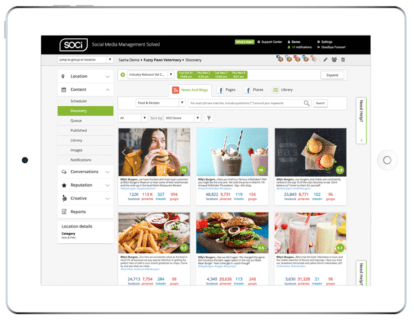
Do you need to manage accounts at both the corporate and local level?
It can be difficult for a corporate social team to create and post content that’s tailored to each individual business location. The corporate team often doesn’t know about local events, local influencers or the nuances of talking to the local customers. The opposite is also true; it’s difficult for the individual franchise owners to create and post content that promotes a consistent brand message and meets corporate brand standards.
Marketers managing local and corporate pages can use social media management tools to coordinate the creation of organic posts between different teams in different locations. The collaboration process becomes much easier if both teams can log into a single platform.
For example, the social media team at the corporate level may need pictures or in-store specials from the teams at the individual franchise locations in order to post location-specific content. Or the corporate team may be running a nationwide promotion, but want the images and text in the post to be tailored to each individual location. While the corporate team has the resources the create brand templates and, the local teams have the expertise and insight needed to tailor posts to local audiences.
Are you having trouble getting your franchisees engaged in social?
Franchisees often don’t have the time or resources to create an effective social media content calendar for their businesses. This can be frustrating for the corporate social media team, especially if the team knows the value of localized social marketing. Getting buy-in from franchisees often requires corporate assistance and collaboration on social efforts.
A social media management tool should help facilitate this type of collaboration between local and national teams through features such as a shared content library, an administrator approval process and dynamic text/images that update based on each business’ location. A shared content library allows local teams to upload photos that can be used by the corporate team, or for corporate teams to upload branded templates that can be customized and used by the local teams. Franchisors should also find a tool that offers dynamic text/image capabilities, which allows the corporate team to create one post for multiple locations — empowering localized content, at-scale.
Do you have a strategy for incorporating reputation management?
The administrator approval feature is especially relevant for multi-location businesses handling both social media management and review response. When responding to reviews across multiple platforms for multi-business locations, companies should ensure each responder is aware of best practices and adheres to the same general guidelines for customer interaction. However, administrator approval can ensure that all review responses are timely, adhere to best practices, remain on-brand, and use the same tone.
Social media and reputation management platforms can help consolidate the multitude of reviews that appear on Yelp, Google My Business, Facebook, TripAdvisor, and industry-specific sites like OpenTable, which makes it much easier to respond to reviews across all platforms, and every location’s page or profile.
Reporting is another factor to consider when choosing a social media and reputation management tool. Reporting dashboards provide a holistic snapshot of how your brand is performing in the reputation management space. It’s far easier to look at a single dashboard with every review and star-rating than it is to search for this information by logging into each social and review platform for each business location.
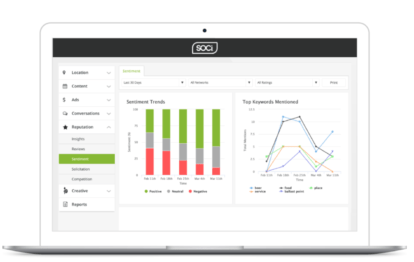
Some social media management tools offer additional features in the reputation management space. Most have some kind of sentiment analysis or word cloud feature. This shows the keywords and phrases that appear most often in your reviews, and whether or not they are accompanied by positive or negative sentiment.
Another feature to look for is competition analysis — a feature that shows key performance indicators for both your business and your local competitors. Trackable metrics include review response time, total count of reviews and average star-rating. While tracking these numbers for your own business is important, tracking them for competitors can provide you with industry benchmarks and minimum requirements for your business’ reputation management goals.
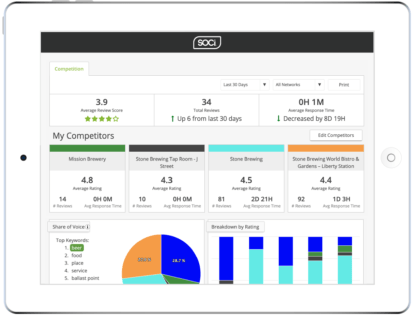
What kind of budget are you allocating towards social media and reputation management?
Adding a social media management tool to your list of software services will cost money, but it will also save time. If you buy a tool that can handle social media as well as reputation management, you may be able to save money by using one tool for two purposes.
When considering your budget, it’s important to set parameters for how you’ll measure the ROI of your new social management tool. Will you track new leads, engagement, or follower growth? Be sure to examine every tool’s reporting capabilities so that you know which metrics you’ll be able to track.
How long is the on-boarding time for a new social media management tool?
When you add a new employee to your team, it takes time for them to get up to speed. The same is true for a social media management tool, except it will be you who needs to learn how to use the tool and how to give your team access to all its features. When examining potential tools, be sure to ask about onboarding time and product training for your team.
Will you be implementing Boost and Facebook Ads?
Facebook’s 2018 algorithm change caused a significant drop in reach for business’s organic posts. As a result, paid social became an essential part of any social media marketing strategy. Facebook Boost and Ads are two of the most common tactics of paid social, but both present challenges for multi-location marketers.
Boost is an easy way for marketers to put dollars behind organic posts to increase reach. However, it can be cumbersome to Boost posts across multiple locations when considering budgetary constraints. Social management tools can help multi-location marketers Boost multiple posts across multiple pages from one platform, and evenly distribute a budget across multiple business locations and boosted posts.
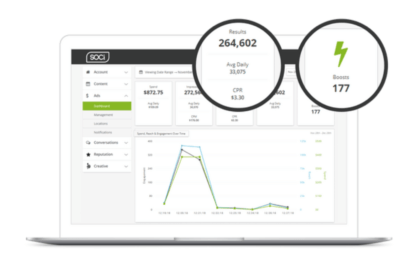
Facebook Ads are another necessary paid social tool, but the Facebook Ads Manager platform is complicated and can be confusing. Franchisors considering a paid social strategy must think about how each business location will handle the budget, the content creation and the audience targeting features. Will this be handled at the local level, the corporate level, or through collaboration between both teams? Consider if you need a social tool to help you facilitate this coordination on ad content, and how you’ll ensure each ad is localized to each of your franchise locations.
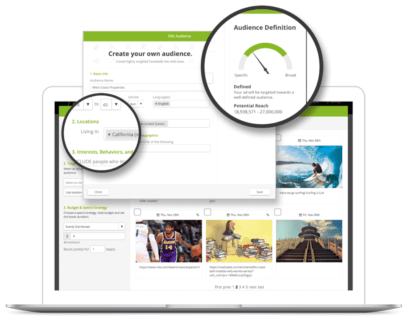
While all social media and reputation management tools can help marketers improve efficiency, some are more effective at managing pages and profiles for multi-location businesses. By answering these questions for your business, you can determine which social management tool will help you empower franchisees while maintaining corporate oversight over your brand.
Discover the features that make SOCi the perfect all-in-one tool for multi-location marketers





